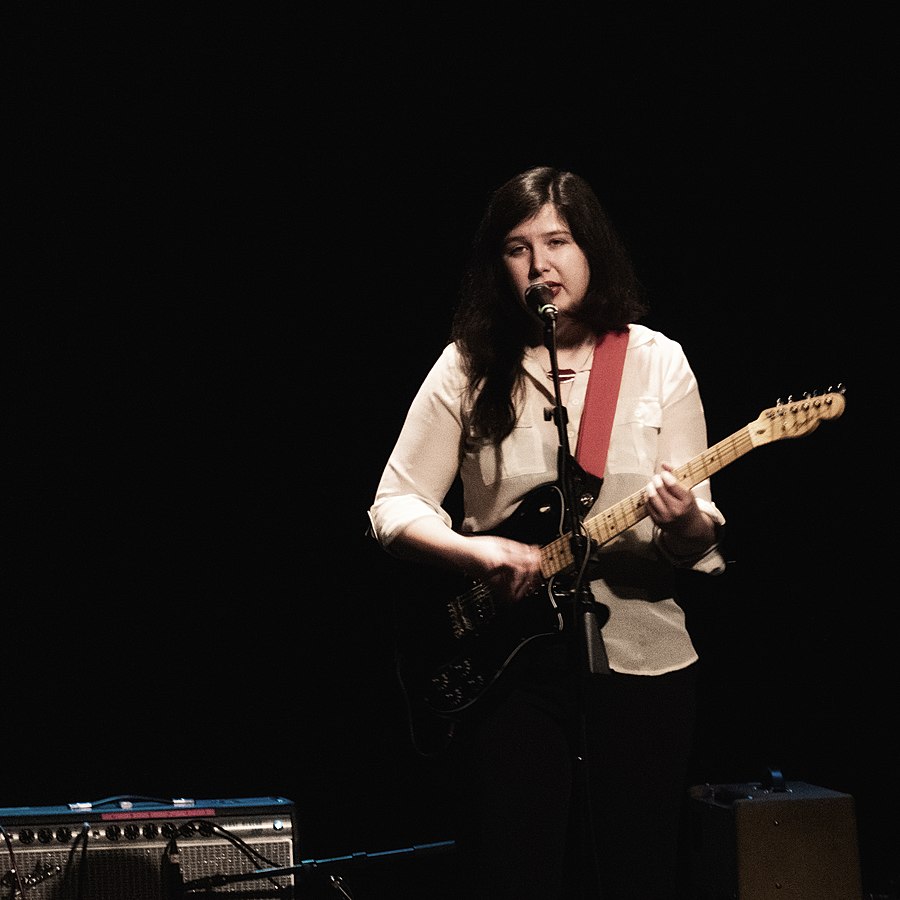Lucy Dacus’s ‘Home Video’ is a gorgeous, introspective diary set to music
Ending the summer term sees many of us returning to our parents’ homes, and rediscovering the nostalgia buried in our hometowns. This navigation of the place you grew up when you make your return – along with the people you know (or once knew) and the stories you all created together – is what Lucy Dacus’ third album, Home Video, is all about.
Taking inspiration from diary entries in journals she had been keeping since the age of seven, the album spans Dacus’ life in Philadelphia and her return after making a break in the music industry. From the experience of growing up religious and going to church camps to first sexual experiences, nothing feels off limits as she lays out her life in song.
The tracks on the record all come with accompaniment of at least a guitar and piano, who take it in turn to accompany Dacus’ alto voice and simplistic but beautiful lyricism. Always surrounded by other instruments or other voices, the record feels (in a way) like a home – communally made, close and warm in some moments and chaotic and full in others.
Thematically, the album can be seen to revolve around five key elements: friends, first times, religion, family and death. ‘Hot and Heavy’ opens up Home Video – up tempo and full of youth. The opening line, “Being back here makes me hot in the face”, nicely captures the anxiety of returning home to memories of embarrassing things you did as a kid, or the memories of your first sexual encounters.
Dacus elaborates more on her ‘First Time’ two songs later, with Dacus in control of the narrative and her lover amid the sexual tension and frenzied feel of the music. She follows it up with ‘VBS’ and her first relationship which she had at church camp with a boy whose love of Slayer made them both start viewing faith differently.
The singer also looks at men who influence female self-perception. ‘Partner in Crime’ is the most out of place track on the record, with the vocals over-autotuned to replicate how Dacus changed herself for an older man. However, it feels amiss in tone and musically, jarring in comparison to ‘Brando’ and ‘Christine’ where Dacus dominates and feels self-assured in criticising male misgivings.
Home Video lives up to its namesake; it is a delve into Dacus’ past as she takes you on the journey through snippets and snapshots that build up her biopic
Family, especially father daughter relationships, feature in both of the album’s best tracks. The first – the darkest song and one of the album’s four singles – ‘Thumbs’, sees Dacus offer to kill a friend’s father. Slowly, with a menacing calm to her voice, says she would commit the murder “if you let me/ I would kill him, quick and easy”.
The second is a track that Dacus describes as “campfire-ish’; ‘Going Going Gone’ looks at the same family dynamic of fathers and daughters. The audio of the track ends with Dacus talking to the people in the recording studio with her: Boygenius bandmates Phoebe Bridgers and Julien Baker; solo artist Mitski; other vocalists; and the recording engineers. It is a complete change in tone to ‘Thumbs’, but could be seen to demonstrates the change in definition of families, love, and friendship. These people with her there in the studios are also her family, protectors, and a home.
Concluding Home Video sees Dacus focus on the theme of death. ‘Please Stay’ sees Dacus talk to a suicidal friend and begs them to remain alive. A different kind of loss is the theme of the final song; ‘Triple Dog Dare’ ends the record by looking at a friendship, dead and buried by a friend’s religious mother who saw the traits of something romantic between Dacus and her daughter. The final moments of Home Video show the two together if Dacus was aware of her own bisexuality at the time of their friendship or if they hadn’t been pried apart; they escape to the girl’s family boat, away from judgement.
Home Video lives up to its namesake; it is a delve into Dacus’ past as she takes you on the journey through snippets and snapshots that build up her biopic. Noticing the little details that you missed at the time; the introspection of being both nostalgic, appalled, or living in awe of these moments that made you – and sometimes, perhaps all three at the same time – is captured beautifully by Dacus.
Sat in a cinema on the album’s cover art, looking back from the centre rows at the viewer, Dacus is ready and waiting for you to view the movie of her life. Her blurry dragged-out face feels like it gives off a knowing smile, as if she’s already aware you’ll find something of yourself in there too.

Comments